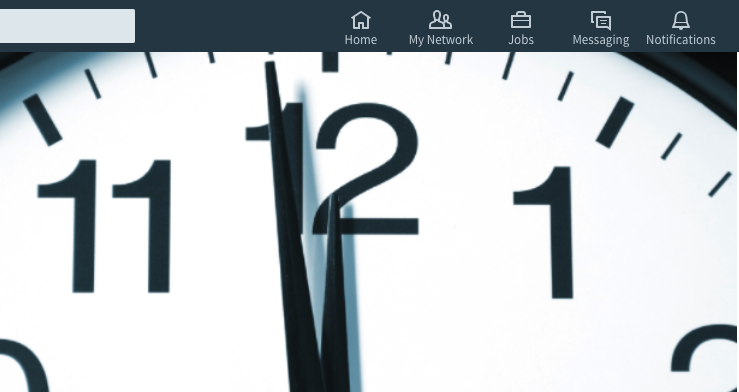blog
|
I love this image.
It speaks a thousand words, and then some. We make our plans for change, get all the tools and resources. And, when it comes time to implement, we need support. Support from our executive champions. Support from our peers too. Encouragement and reassurance makes all the difference. The Softer Side of Implementation When you're learning a new skill or rolling out a new system, tool or process we need to think of the softer side of the implementation - how to keep our motivation up in the downtimes, connect with our peers, communicate our success, learn from failure. Because it's not always going to go well the first time, the second or the third. But the trial of the 'trial and error' makes for greater personal resilience and yields the opportunity to learn about oneself for oneself. In learning, there ought to be space for the learner to learn what works best for him / her, in addition to what works best for the organization. When I design learning programs or interventions to build capacity (WikiEducator.org comes to mind, where I helped build a community of 18,000 educators in 120 countries), I always try to think about what the person might be experiencing before and during the change. How does this person prepare? Readiness for Change Where is the person on the continuum from doubting self-talk, one foot in, one foot out engagement to 'fake-it-til'-you make it'? How has s/he tapped into his/her personal readiness for trying something new - deciding to take the leap regardless of tossing and turning the night before. Or, are they leaping with excitement of the chance to start something new - knowing that someone cares, and is with them as a guide, a coach and resource, dare I say, an empathetic and compassionate companion. When you're thinking of rolling out a new system, tool or approach, take the time to consider that change affects people differently in visible and non-visible ways. Recognize they're probably thinking about themselves; how they fit in (or don't); and What's In It For Them - before, during and after The Change to Your Organization.. It applies to Millennials, Generations X, Y and A-Z. Rest assured. It's happening whether it's acknowledged or not. You may ignore this reality, at your peril. Or, you can make sure that reassurance, guidance and support are ready-to-go arrows in your quiver. That would be right on target.
1 Comment
After 8 weeks of teaching in one of New Jersey’s best, Rutgers University, I have been felled by flu-like symptoms. I watched my students struggle through it, and it didn’t look pretty. I had hoped I had dodged it, but no reprieve unfortunately.
So, as I lie awake at 1:50 am, I am reminded how much the flu impacts my life. Anyone else who has it bears the effects. Hard to think, lots of wheezing and tiredness and certainly not a localized effect. Everyone in the household is affected and beyond. Which has me thinking that having the flu or a cold has some things in common with IT projects that are delayed or miss critical deadlines. The major reasons being poor communications and scope creep. A much-heralded IT project becomes a greater risk and even a liability because the effects are not localized to the project, but impact a much broader community. Take an external IT services provider, for example. It’s hard to leverage success for marketing, if the success doesn’t exist. Or people are grumbling. Well beyond the delay, credibility suffers. And, when the implementation training actually comes around, it often seems rushed, out of date. For internal projects, what often is lacking is the change management piece. I’m not talking about version control. I’m talking about creating readiness for the new, shiny tool, app or system and having a plan for dealing with inevitable resistance and fear of change. A bad cold (delay) in the IT shop can display flu-like symptoms throughout the rest of the organization - and undermine support and ‘buy-in’ for future projects. In fact, it usually does. Other parts of the organization, buried with demands for doing more with less, hope the IT project doesn’t take too much of their time, and somehow gets done. How to solve the problem? Acknowledge it, have a plan, change how the project is implemented and communicate with people with the same message regardless of channel. When blowback occurs, don’t run and hide - hear it, respond to it, and take responsibility for making adjustments. People are watching for improvements - sure, they’re tired and may not sing your praises immediately, but will respect your efforts - setting the stage for the next shiny, new mousetrap. As your project gets back on track, have a cup of tea and lemon (or a brandy) and remember, the suffering could be a hell of a lot worse - only, you’ve nipped it in the bud. Recently, I wanted to thank a new contact in her early 30s (or possibly younger) for an introduction to an executive leader of a startup organization. She was direct and responsive, traits that are often in short supply these days. After several messages back and forth, I decided to thank her for her diligence and follow-through. She had been communicating with me at nearly 12 midnight, and I wanted to thank her for it. So, I jotted down the phrase "burning the midnight oil", referring to the late night effort she was putting in.
I thought about it, and the more I thought about it, I began to realize that maybe she would not recognize this phrase, and using it would do more harm than good to a new, budding contact. I have learned this recently, in my role as a professor at Rutgers University. To not assume that students have heard of phrases and terms that I know or take for granted. And now, I check. I check with myself. I check with the recipient - just to make sure. And so, it was this way with my email - instead of sending it off, I decided to rein in my attempt at humour - because one never really knows how it comes across anyways. I never would have thought about doing it this way. But thanks to a pause and a second thought, I did. And, I'm glad for thinking about how to best communicate with a new person in my professional life. It portends effective #communication in the future. |
about MeRandy Fisher - Rutgers Professor & Career Coach ArchivesCategories |
company
|




 RSS Feed
RSS Feed
